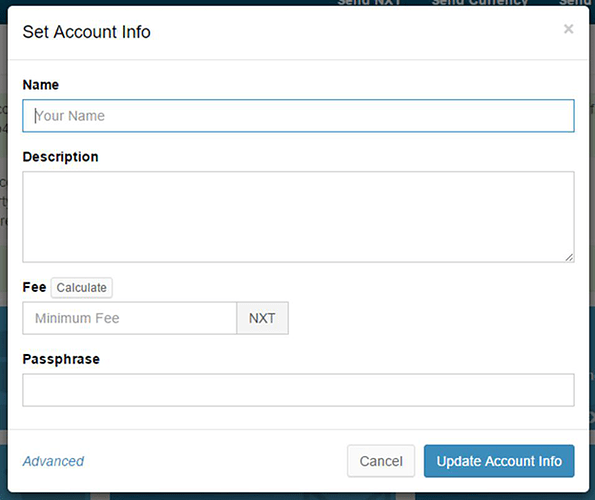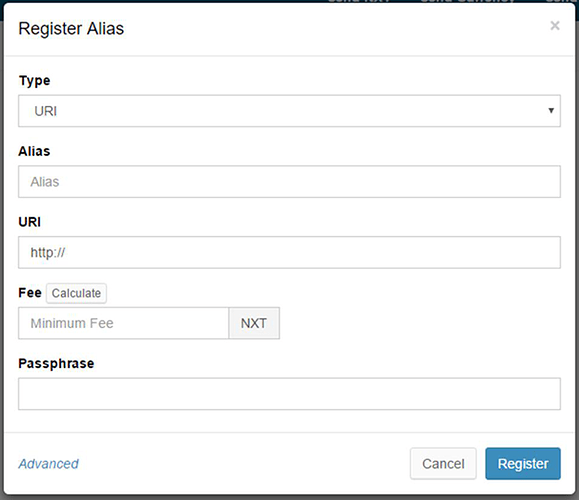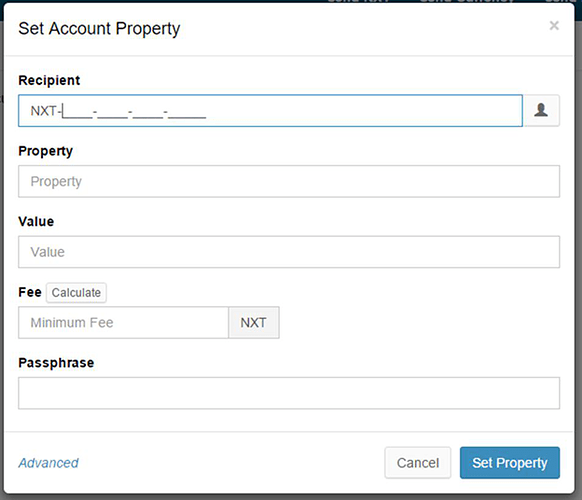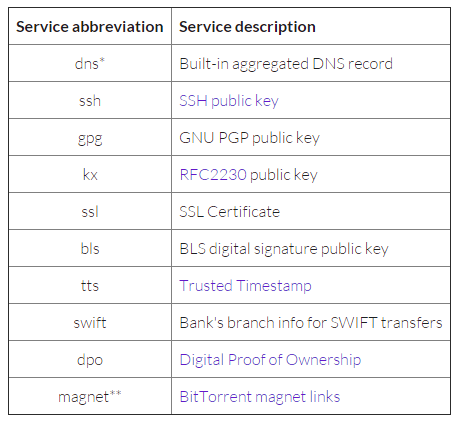Here is a discussion about metadata on accounts.
I guess NEM has a couple of ways it could go. I could put metadata on a namespace, or on an account, or possibly on both.
The most advanced metadata features on a blockchain are from NXT, so I’ll take a moment to look at them. If anybody else has seen something more advanced, please let me know.
##Account Info
This is kind of cool. You can make a name for your account and a description. Name can be anything you want. Mine is JL777 on NXT. That is of course not me, I just wanted to see if I could so I did. (this could be an attack method for scammers) Description can be anything you want. All this is on the chain. When you send a transaction to others, they can see your name and I think they can even see your description. You can put anything you want in that description.
##Alias
Everyone here is familiar for the most part.
Of the three options for aliases is URI (think it should say URL). This links a name to an internet address. Option two instead of URL, I can choose account, where now an account gets a name. Strange thing though, these aliases are unique, so somebody else has the alias JL777, not me. And lastly, we have the vague “Other” option, where I can enter “data” whatever that means. I think it just means text and like description in Account Info, I can write anything.
##Account Properties.
I really like this idea and have talked about it before. I am so excited because nobody anywhere is doing this and I think it is a huge untapped feature. Everyone else is trying to figure out how to make a perfect token of value, but here we have the first example of an account as value, which is interesting because accounts can do so many things tokens can’t or won’t ever be able to do.
Here we can make either our own or another person’s account a virtual property. Then we name and appraise the property. This means the person that owns that account is now the owner of that property. This is okay for central authorities I guess to assign ownership.
One way that I think NEM really shines here is that if an account now has been assigned a value in and of itself, that account can now also be transferable. In NEM an account that is viewed as a valuable asset can be passed from person to person much in the same way a token is except in NEM it is achieved through the multisig options.
##Way Forward?
So here we have there three big ways to assign names, descriptions, and values to an account. I would like to hope that NEM can have a unified and coherent system for doing this. Namesapaces are great at taking us a step closer to this. I’m hoping that in NEM, it can all be under one system so it is clear.
I suggest we do this once, and we do it right. Take the best of all of these and add them together.
So how would such a thing look. Should meta data get attached to an account or a namespace or maybe both?
Some of the things to be considered could be the following:
Name
Description
Data
URL
Phone Number
Email
Signature
Property
Value
Other
And anything else? Or are there any other platforms with unique approaches to metadata?
Maybe there could be a reputation in metadata or a rating from a third party. Maybe certification.




